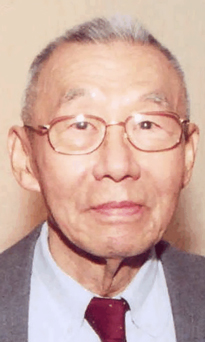Professor Hun H. Sun, a mentor, innovator and inspiration to many students and faculty colleagues at Drexel University, passed away peacefully at his home on January 26, 2015. Dr. Sun was one of the founders of the Biomedical Engineering and Science Institute at Drexel University, a precursor to the School of Biomedical Engineering, Science and Health Systems. A ‘change agent’ par excellence, he deeply believed in the power of engineering in medicine and the good that would come from merging the two disciplines and cultures to enable solutions to save lives. He was a transformative pioneer in many dimensions.
The Biomedical Engineering and Science Institute offered one of the first biomedical engineering graduate programs in the country. Dr. Sun worked closely with clinical partners to bring new technologies to medical practice. He mentored generations of electrical engineers and biomedical engineers throughout his distinguished career leading his students and junior colleagues by example. The creation of the School of Biomedical Engineering, Science and Health Systems in 1998 is a testament to his enduring legacy.
In the early 1990’s, together with his student Xiang Wang, he invented and translated the IQ Impedance Cardiography System, an integrated non-invasive method to measure cardiac functions using the impedance cardiography method. The impedance cardiography system was based on the latest technologies in digital signal processing, digital filter design and the adaptive time-frequency threshold detection method to eliminate noise interferences and motion artifact. The device monitors a total of nine different cardiac parameters including cardiac output, stroke volume, and cardiac index. The device replaces the invasive cardiac thermodilution method without the dangers involved and at a great savings of cost. As one of the first biomedical technologies developed and licensed by Drexel University, the device has been a great success and proved to be superior to rival units.
His career began at Drexel as a professor of electrical engineering. He was one of the first faculty members to have a Ph.D. (Cornell 1950), one of the first to receive research grants from outside agencies (NIH, NSF, etc.), and was considered one of the most influential faculty members in the College of Engineering. His book, “Synthesis of RC Circuits,” was widely used as a text book in electrical engineering departments around the world. Following his pioneering service as director of Institute of Biomedical Engineering at Drexel, he transitioned into the role of Department Head of the Electrical Engineering Department. He served with distinction in that role and helped set the stage for the Department to move on to the next level.
Assuming many professional leadership roles nationally and internationally, Dr. Sun promoted the cause of Biomedical Engineering as a ‘renaissance of engineering.’ His service as the founding Chief Editor of the most prestigious publication in biomedical engineering, namely the IEEE Transactions on Biomedical Engineering, is legendary. Dr. Sun was fully committed to Drexel University’s mission as a driver of innovation. After his service as EE department head, Dr. Sun returned to the professoriate and dedicated his teaching and research to the use engineering principles to the design of medical devices.